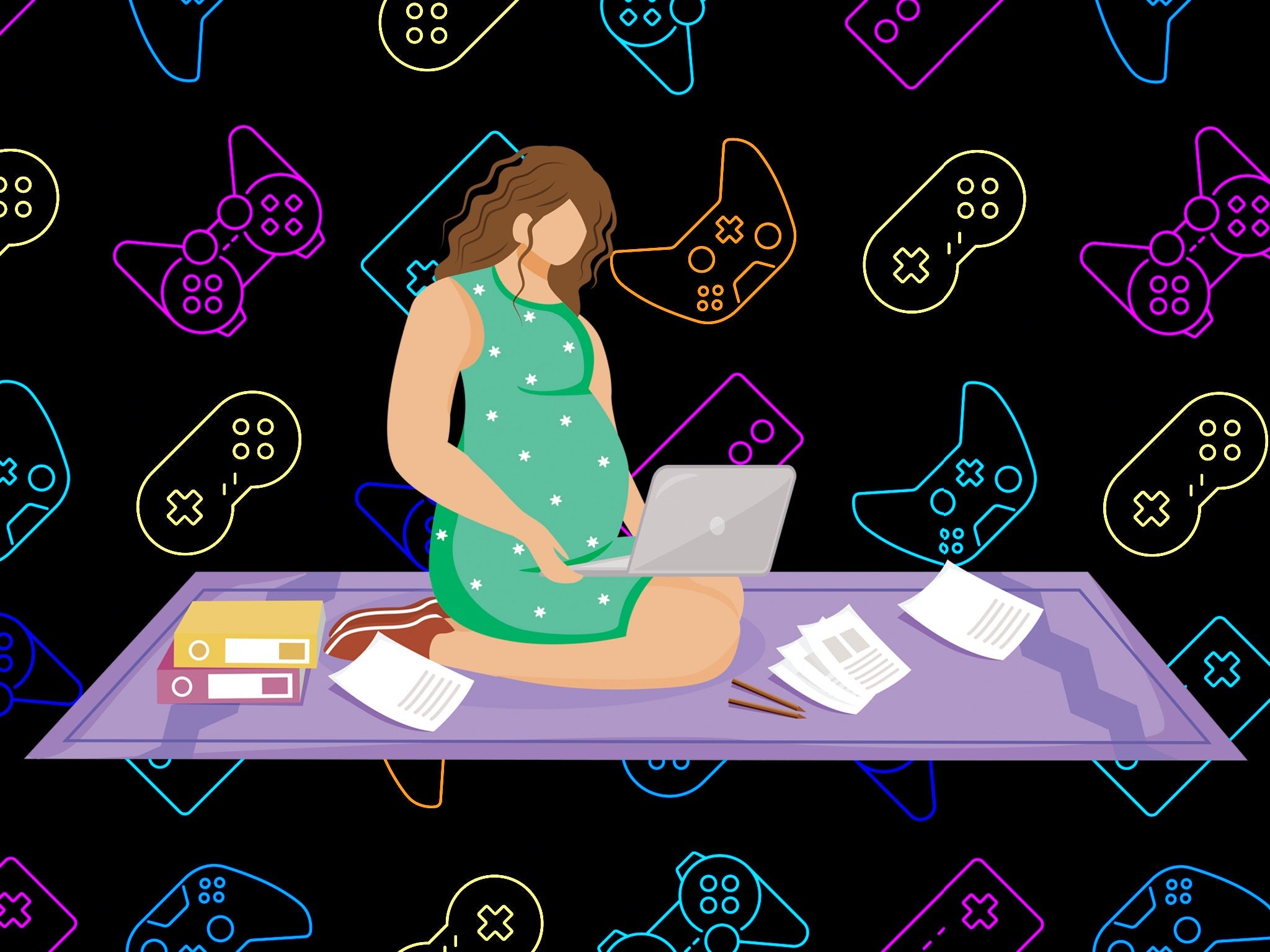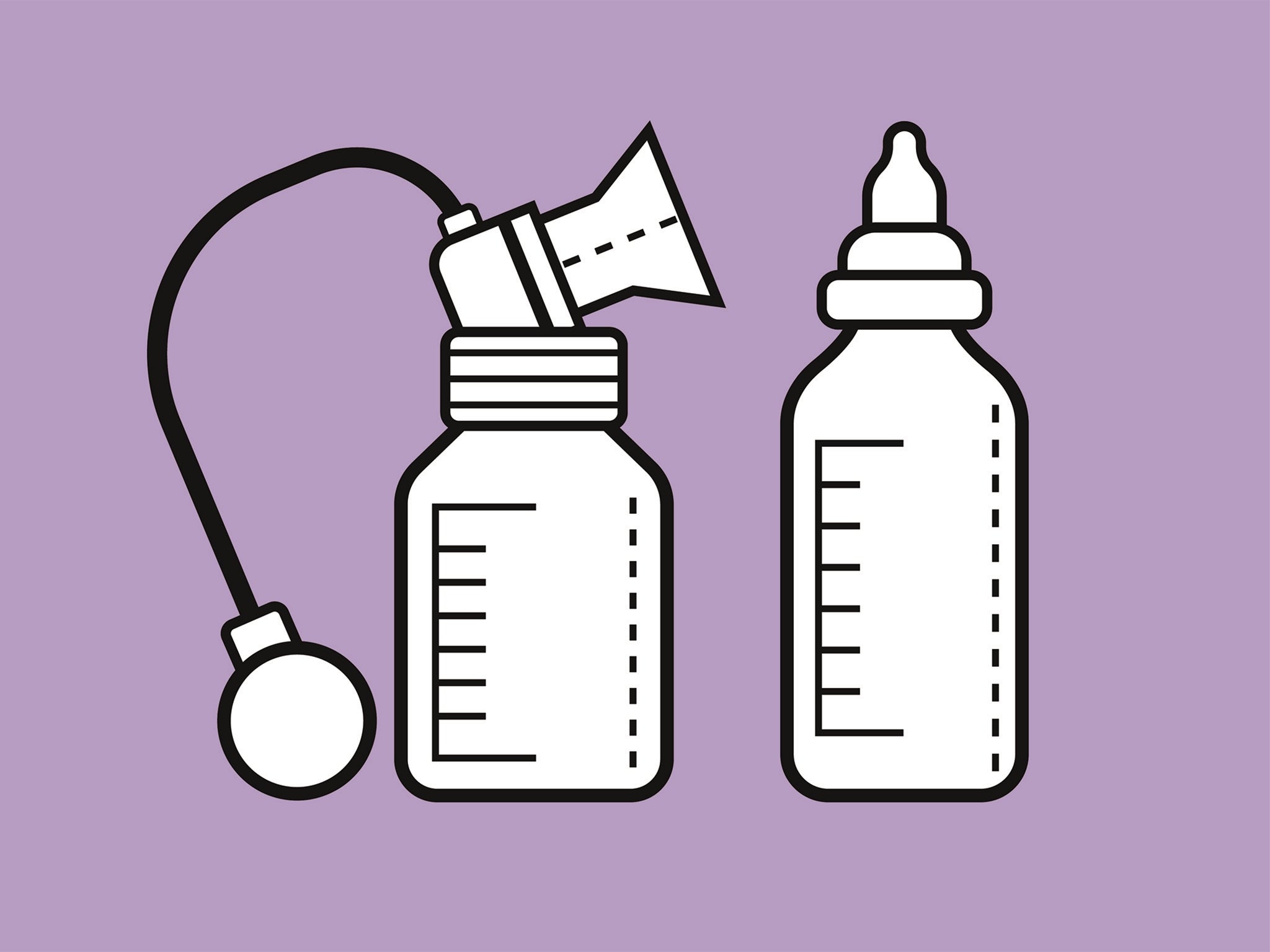The male-dominated video game industry grapples with maternity
‘I went back to work after only two months, pumping three times a day in a small closet at the office – a luxury for most lactating mothers – while answering emails on my phone’ – Stacey Henley reveals the struggles of being pregnant in the video game industry

Your support helps us to tell the story
From reproductive rights to climate change to Big Tech, The Independent is on the ground when the story is developing. Whether it's investigating the financials of Elon Musk's pro-Trump PAC or producing our latest documentary, 'The A Word', which shines a light on the American women fighting for reproductive rights, we know how important it is to parse out the facts from the messaging.
At such a critical moment in US history, we need reporters on the ground. Your donation allows us to keep sending journalists to speak to both sides of the story.
The Independent is trusted by Americans across the entire political spectrum. And unlike many other quality news outlets, we choose not to lock Americans out of our reporting and analysis with paywalls. We believe quality journalism should be available to everyone, paid for by those who can afford it.
Your support makes all the difference.Games developers often refer to games they’ve worked on as their babies. For Jo Haslam, game design director at Snap Finger Click, that is more literal than for most.
“My partner (who also works at Snap Finger Click) brought his laptop to the hospital when I went into labour. I gave birth at 9pm, and my partner pushed the release button of our game at 9am the next morning,” says Haslam. “I hadn’t made a big deal out of being pregnant, so when I posted about our new baby a lot of people thought I was referring to the game.”
Haslam’s experience highlights the relentlessness of games development, but by her own admission, she’s one of the luckier ones. “I work for a smaller studio in a senior role,” she says. “I’ve been able to have a say in our working practices.”
Others are not so fortunate, detailing instances inside the game development sphere that show the industry is awkwardly grappling with issues around pregnancy and maternity. Pregnancy, in and of itself, comes bearing an array of day-to-day challenges: tiredness, discomfort, and an innumerable list of other possible physical changes and complications. These, in turn, can be exacerbated by working in an industry with a well-earned reputation for long hours. And in the US in particular, only eight states and the District of Columbia have enacted paid family leave policies, some of which have yet to go into effect. Taken together, these factors mean that pregnant women working in the video game industry face extraordinary challenges – above and beyond the usual travails of game development.
“I feel like I’ve lost half a year of my career as my pregnancy wasn’t smooth,” says Katie Goode, creative director of Triangular Pixels. “I had incredibly bad morning sickness so was laid up for a few months. I couldn’t actually play most games during that time or work in-engine as I would throw up with any camera movement.”
Fatherhood has been a popular theme in gaming this past decade. BioShock: Infinite, The Last Of Us, God Of War and The Walking Dead, among many others, have all tackled the theme in one way or another. Motherhood has been far less prevalent, something some women see as emblematic of a male-dominated industry that is not accustomed to thinking about that topic and its associated issues.
“I found a ‘top 10 game mothers’ list, and it included Kangaskhan from Pokémon [a character that carries around a child in a pouch like a kangaroo] and generic moms from The Sims, so it’s pretty clear what the current state is,” says Haslam. “The best experiences are based on what people making it know, and since the big decision-makers tend to be men, it’s only natural themes of fatherhood start to emerge.”
Many of the women The Washington Post spoke to report being the first, or among the first pregnant employees at their company. This often means they faced a lack of infrastructure to support them during their pregnancy and upon their return to work, such as a failure to provide sufficient breaks, private places to pump or demanding long hours.

Melanie Christin, co-founder and co-CEO of Atelier 801, a French studio best known for the indie multiplayer game Transformice, shipped the MMO (Massively Multiplayer Online) Dead Maze 10 days before giving birth. Despite the physiological changes that occur during and after pregnancy, “you’re expected to still give 110 percent of yourself to your project and passion”. Christin says, “Unlike cis men who are fathers, most cis mothers are expected to also bear the emotional and household workload all the time in some corner of our heads[.] We can’t possibly have a full, uninterrupted day of work and just log off and be able to focus on our family after 6pm.”
This lack of accommodation can put a strain on physical and mental health, which can have dangerous consequences for pregnant women. When Christin went into labour after shipping Dead Maze, she was actually a month early. “I underwent a complicated labour, emergency C-section, and had to recover and tackle newly discovered motherhood at about the worst of times, just post-release with a lot of issues to address,” she says, referring to the online support, bug fixes and server issues which come with running an MMO.
Even in her executive-level position, Christin felt pressure to constantly work. “I tried my best to keep myself out of work, but failed too often, and the stress had nefarious effects on my breastfeeding supply,” she said. “I went back to work after only two months, pumping three times a day in a small closet at the office – a luxury for most lactating mothers – while answering emails on my phone.”
Several mothers describe similar closet pumping stories. Supposedly private pumping areas include meeting rooms in which the mother is mistakenly walked in on, restrooms, and rooms in the office where equipment has been arranged into a makeshift barrier.
Workplace stress presents another serious problem. The final months ahead of a game’s release commonly involve long hours at the office, a period known in the industry as crunch. While many developers simply accept this as part of the job, it can affect pregnancies and new mothers in far different ways than other employees.
Sometimes companies don’t have a policy for something simply because they haven’t had a situation come up, or they’re willing to reconsider when they see real needs that exist
Breastfeeding is one example. “I think we know that women are more successful at breastfeeding when they are given ample time to bond with their child and do it,” says Jennifer Lesko, an assistant professor of Obstetrics & Gynaecology with George Washington University Medical Faculty Associates. “Returning to work and not having time to pump adequately or the time to relax before trying to pump can certainly decrease milk supply. We see this often in the US, as women who return to work often drop breastfeeding/breast pumping at six months or from nine-12 months.”
Several of those interviewed point to crunch as the industry’s biggest negative, and a big obstacle for women.
“I would hesitate to take a job that requires long, sustained periods of crunch,” says Desiree Cifre, a writer and narrative designer. “In my first job in the industry, crunch was expected. I was young and single at the time, so it didn’t affect my personal life, but I saw the effects it had on some of my co-workers. One person broke up with their fiancee, another colleague who had a small child got divorced.”
Crunch has increasingly become the norm in the industry. A 2017 International Game Developers Association survey found that 37 per cent of employees reported working between 50-59 hours, 29 per cent reported between 60-69 hours and 14 per cent reported weeks of 70-plus hours.
“I’ve rarely seen women developers, and not really seen any pregnant women when working at larger studios,” says Goode. “I’ve been at studios where you have to be signed in on the minute at 9am, work the hours in office, and required to work crunch. No space for babies there – you’re treated like a naughty child doing detention every day already. If you find yourself at a place like that then find somewhere else that respects your family life, or join a union.”
Developers in America also point to a dearth of federal regulations concerning the working conditions of pregnant women and new mothers, particularly pertaining to health care policy.

At the federal level in the US, there is only a bare minimum of protection. The Pregnancy Discrimination Act says that companies of 15 or more employees must treat pregnant women in the same manner as other employees, while the Family and Medical Leave act grants 12 weeks of unpaid leave – provided your company has more than 50 employees and you have worked for the company for more than 12 months. According to an analysis by the Organisation for Economic Cooperation and Development, the US is the only country of 41 high- and middle-income nations to offer no nationally-mandated paid maternity leave.
“In the US, the policies are terrible,” says Allison Salmon, a former Activision and Raven Software developer who now makes educational indie games. “I’ve known women whose [employer-provided health care] plans denied coverage of their 20 week ultrasound as unnecessary, and even tried to not cover an emergency C-section because [the patient] should have gotten preapproval.”
For those facing a lack of accommodation around their pregnancy, Salmon says women should advocate for themselves. “Ask for what you need even if the policies don’t exist for it yet,” says Salmon. “Sometimes companies don’t have a policy for something simply because they haven’t had a situation come up, or they’re willing to reconsider when they see real needs that exist.”
Several of those interviewed by The Post say the current situation could impact the number of female developers willing, or even able, to work in the industry.
“I have friends who bailed on the industry entirely after having kids,” says Bekah Saltsman, CEO of FinjiCo, who gave birth to her first child in 2011 when she was working in the industry in human resources. With the help of her husband and co-CEO of FinjiCo, she managed to juggle family life and get more involved in game development. But that doesn’t always work out for others.
“When I first started out, I dreamed of working on a Triple-A game,” says Cifre, referring to the industry’s blockbuster game titles. “Now, I have to place a higher value on working consistently, but in a way that allows me to spend time with my family.”
Stacey Henley is a writer who covers pop culture. She has previously written for IGN, Polygon, Eurogamer and more. Find her on Twitter @FiveTacey
© The Washington Post
Join our commenting forum
Join thought-provoking conversations, follow other Independent readers and see their replies
Comments